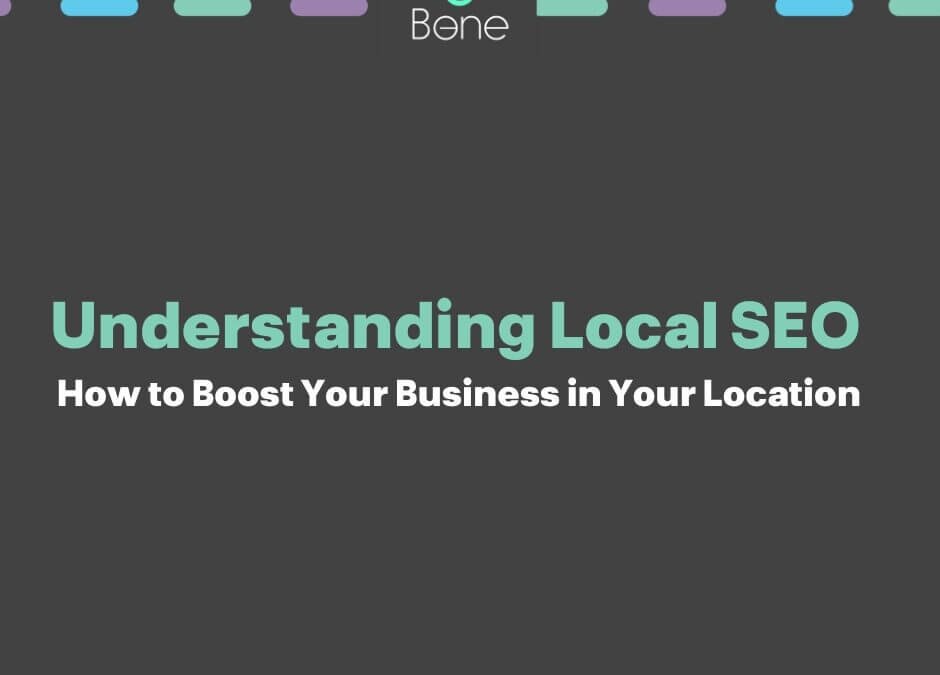In today’s digital age, local search engine optimization (SEO) has become an essential strategy for businesses looking to thrive in their specific locations. Local SEO focuses on optimizing your online presence to increase visibility and attract potential customers within your geographical area. This guide will provide you with valuable insights and actionable steps to enhance your local SEO efforts and boost your business in your specific location.
Claim and Optimize Your Google My Business Listing:
Google My Business (GMB) is a powerful tool that allows businesses to manage their online presence across Google platforms. Ensure that you claim and verify your GMB listing, providing accurate and up-to-date information about your business. Optimize your listing by including relevant keywords, a compelling description, high-quality images, and your operating hours.
Consistent NAP Information:
NAP stands for Name, Address, and Phone Number. Consistency is crucial when it comes to your business’s NAP information across various online directories, including your website, social media profiles, and local business listings. Ensure that your NAP details are accurate, consistent, and prominently displayed to enhance your local SEO.
Localized Keyword Research:
Identify relevant keywords that are specific to your location and target audience. Conduct thorough keyword research to understand the search terms potential customers use when looking for products or services in your area. Incorporate these keywords naturally into your website’s content, meta tags, headings, and image alt tags to improve your local search rankings.
Location-Specific Content:
Create compelling and informative content that caters to your local audience. Develop blog posts, articles, or videos that highlight local news, events, and insights related to your industry. This not only establishes your business as an authority in your area but also boosts your local SEO by generating relevant and engaging content.
Online Reviews and Reputation Management:
Positive online reviews play a significant role in local SEO. Encourage satisfied customers to leave reviews on platforms such as Google, Yelp, or industry-specific directories. Respond to reviews, both positive and negative, in a timely and professional manner to demonstrate your commitment to customer satisfaction and build a positive online reputation.
Local Link Building:
Acquire high-quality backlinks from reputable local sources to improve your website’s authority and visibility. Reach out to local organizations, influencers, bloggers, and other businesses in your area to collaborate on content, guest blogging, or partnerships. These local link-building efforts can significantly impact your local search rankings.
Mobile Optimization:
With the increasing use of smartphones, mobile optimization is crucial for local SEO. Ensure that your website is mobile-friendly, loads quickly, and provides an excellent user experience across different devices. Optimize your website for local mobile searches, including location-specific keywords and providing clear directions to your business.
Local Schema Markup:
Implementing schema markup on your website helps search engines understand your business’s essential details, such as address, phone number, business hours, and customer reviews. By using structured data markup, you can enhance your chances of appearing in local search results and rich snippets, providing valuable information to potential customers.
digital marketing agency egypt
By implementing the strategies outlined in this guide, you can effectively boost your business’s local SEO and improve your online visibility within your location. Remember, local SEO is an ongoing process that requires monitoring, adapting to algorithm updates, and consistently providing value to your target audience. Invest time and effort into optimizing your online presence, and you’ll reap the rewards of increased local visibility, organic traffic, and ultimately, business growth.
SEO Company near me
Importance of Local SEO for Businesses Targeting Specific Geographical Areas:
- Increased Online Visibility: Local SEO helps businesses appear in relevant local search results, ensuring that their products or services are visible to potential customers in their target location. This increased visibility leads to higher organic traffic and, ultimately, more opportunities for conversions.
- Targeted Audience Reach: Local SEO allows businesses to specifically target their desired audience within a particular geographical area. By optimizing their online presence for local search, businesses can connect with potential customers who are actively seeking products or services in their specific location, increasing the likelihood of conversions.
- Competing with Local Competitors: For businesses operating in a specific geographical area, local SEO is crucial to stay competitive. It helps level the playing field by ensuring that small and local businesses can appear prominently in search results alongside larger competitors, enhancing their visibility and brand recognition.
- Mobile Search Dominance: With the rise of mobile devices, local searches have become increasingly prevalent. Users frequently search for products, services, and businesses “near me” while on the go. Optimizing for local SEO ensures that businesses appear in these mobile search results, capturing the attention of potential customers at the moment they are actively looking for local solutions.
Actionable Tips to Optimize Online Presence for Local Search:
- Claim and Optimize Google My Business (GMB) Listing: Create a GMB listing and provide accurate and complete information about your business, including name, address, phone number (NAP), business hours, and website URL. Add high-quality images, respond to reviews, and regularly update your listing to improve local visibility.
- Consistent NAP Information: Ensure consistent NAP details across your website, GMB listing, social media profiles, and local directories. This consistency establishes trust with search engines and users, improving your local search rankings.
- Keyword Research and Optimization: Conduct keyword research specific to your location and integrate these keywords naturally into your website’s content, meta tags, headings, and image alt tags. Focus on long-tail keywords that reflect local intent and incorporate them strategically throughout your website.
- Localized Content Creation: Develop content that is relevant and specific to your target location. Create blog posts, articles, or videos that highlight local events, news, and industry insights. This not only engages local audiences but also improves your local SEO by generating locally focused content.
- Online Reviews and Reputation Management: Encourage customers to leave online reviews on platforms like Google, Yelp, and industry-specific directories. Respond to reviews promptly, both positive and negative, demonstrating your commitment to customer satisfaction. Positive reviews contribute to your local SEO and help build trust with potential customers.
- Local Link Building: Seek opportunities for local link building by reaching out to local organizations, influencers, bloggers, and businesses. Collaborate on content, guest blogging, or partnerships to acquire high-quality backlinks that improve your website’s authority and local search rankings.
- Mobile Optimization: Ensure your website is mobile-friendly, loads quickly, and provides a seamless user experience on mobile devices. Optimize your website for local mobile searches by incorporating location-specific keywords and providing clear directions to your business.
- Utilize Local Schema Markup: Implement schema markup on your website to provide search engines with structured data about your business, including address, phone number, business hours, and customer reviews. This enhances your chances of appearing in local search results and rich snippets.
Remember, local SEO is an ongoing process that requires continuous monitoring, adapting to algorithm changes, and providing value to your local audience. By implementing these actionable tips, businesses can enhance their online presence, increase visibility within their target location, and attract more local customers.
Professional SEO Consultant in Egypt

